This year I have started to build a substantial narrative on a new history of Brisbane’s society and culture, based on research from the previous three years and continuing. The outcome will be a book with a working title, ‘Local Landscapes Past: How to Re-Imagine Brisbane Communities’ and the research will also feed into two other books of Queensland history. I am also hoping this year to deliver a conference paper, entitled, ‘A prophet without honour in his hometown: Local History and Global Learning, Historical Mapping of Brisbane Thinkers and the Local Environment 1859-1959’. The focus of the history is on intellectuals or thinkers who were influential as Brisbane residents. Currently, I am not convinced that many of those Brisbane residents who were intellectuals or thinkers of some kind were ‘so’ influential in Brisbane society, and I suspect that the most influential Brisbane residents were not intellectuals or thinkers of the philosophical type – philosophy as the discipline which sets the standard for thinking. Nevertheless, in the past years, working on topics of local history and of war and peace in Queensland I have come across a number of extraordinary scholars whose works would be read and debated globally. I am thinking here of Elton Mayo and Jack McKinney, names that most Brisbane residents and Queenslanders have never heard of, but who have international reputations through international academic journals and books. A prophet is always without honour in his hometown, and how many more are there?
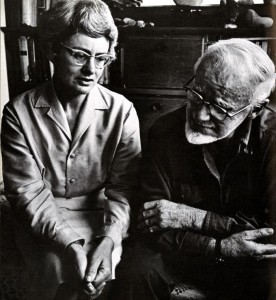
Judith (Wright) and Jack McKinney. Taken from the Five Senses Festival
The history work is in the approach of digital history and big data, starting with datasheets edited and filtered from the online listings of the Australian Dictionary of Biography (ADB). From the biographical entries, the focus or purpose has been identifying the publication works which would have been influential on Queenslanders (at least) in thinking about ways of life — the major themes of the humanities and society. Hence, there is not a natural alignment between an occupation of an intellectual or a thinker and the reason for selection and the method of groupings. I have placed much more weight on key publications which said something significant for Queensland in my selection and groupings than a person’s occupational reputation. For example, anthropological views on Aboriginal and other indigenous persons and communities is a major area of the literature for Queensland during the twentieth century, but that literature included not only professional anthropologists, but also those who never worked (in a strict sense) as anthropologists. There are historians influential in their Queensland publications who didn’t work to professional standards and their occupational reputations tended to be other fields (as we know). Therefore, the quality of arguments is not a criterion for exclusion, but is something for analysis in the historical descriptions.
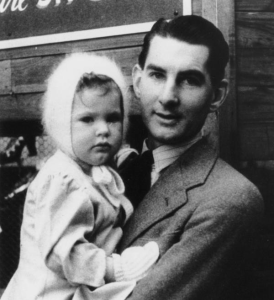
Gordon Greenwood, c. 1941. Taken from the State Library of Queensland
The key to the project here is grouping intellectuals and thinkers. This does have a degree of artificiality, particularly since I am forcing influential intellectuals and thinkers into one category. For example, I have placed Judith Wright as a poet, but I could have well placed her with Neville Bonner as a social critic and policy advocate. Others in the list could have fallen into this category or another category, but what has to be kept in mind is that this is not a biographical approach. What I am asking myself is who are the persons of Queensland who have informed the views of Queenslanders on philosophy, theology (public morals and social order), law, education or the economy, etc. All of the areas which creates beliefs about ways of life. Nevertheless, I will have some flexibility to be inclusive of cross-categorization later in my writing-up.
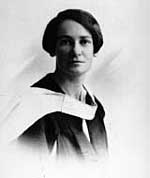
Dorothy Hill. Taken from the Australian Academy of Science
The groupings are by no means equally distributed, that would create artificiality in the method. The distribution comes largely from the collective view of who appeared in the ADB (to date), along with Helen Gregory’s list of University of Queensland Professors, and my own research work that turned up a few persons who have yet to appear in the ADB (16% of the current list). I make no apology that historians are well represented. It makes sense that those who influence what we think of the Queensland’s past and Queensland’s place in the world will be historians. I have work to diminish my own bias as an analytic historian to be as inclusive as I can of those fictional writers who were very influential. Again, I have been guided by the ADB listings which have been the judgments of others.
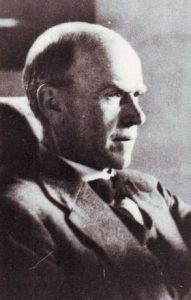
Elton Mayo. Taken from What Is Human Resources
A number of the groupings are counter-intuitive to the usual classifications of intellectuals and thinkers. As an aside on this point, it is interesting that the National Library of Australia (NLA) classifies poets as ‘intellectuals’; in my analytic bias I tend to think poetry clouds an understanding of ideas (but I put that bias aside in an endeavour to be inclusive). Hence, I need to make a few notes on some of the groupings:
Public Theologians: do most Queenslanders think about theology? I suspect not. However, as church-attendance was significant in the mid-twentieth century for Queenslanders (and I think the case into the 1960s) there were certain intellectual figures who basically informed how to think on moral issues and issues of the social order. One only has to mention the role of Archbishop Duhig (and his nephew, James Vincent Duhig, bringing an anti-theology counter-balance).
Traditionalists: there are a number of Queensland intellectuals or thinkers who do not fit a single classification well in considering their influential publications. Most of these are early twentieth century figures whose ideas carried into the mid-century. They were community leaders defending and promoting the traditional British way of life, as it was considered at the beginning of the twentieth century. Their writings cover a numbers of themes, including the advocacy of British militarism and colonialisation.
Educationalists: It is important to delineate between influential educationists promoting ideas on culture and those whose concerns are singularly on matters of the material world. There are also the pure educationalists, such as Story and Schonells, whose concerns are about the processes of education, not the content.
Agriculturalists: The matters of agriculture generally have not been seen as intellectual, but this is Queensland, and a very major idea for the society in the twentieth century was the nation, the state, and the people living ‘on the land’.
So, at this stage I have 97 intellectuals and thinkers in the list. Since it is a lovely round figure (and for no other reason) I am thinking about building up to 100 twentieth century Queensland intellectuals and thinkers. I have already thought a few key figures I had not included and should.
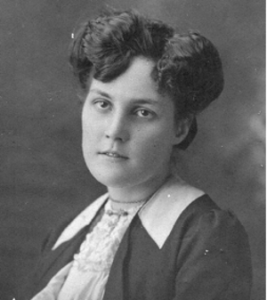
Elsie Harwood, (nee Scott). Taken from Wikitree
This is mostly the digital history and big data, the greater endeavour is telling the stories, which I have already started with in a number of research papers on Elton Mayo and Jack McKinney. The book and conference paper drafting will deliver new stories in Brisbane and Queensland histories.
Neville Buch
Latest posts by Neville Buch (see all)
- Dear grossly, ethically, corrupted - December 21, 2024
- Thoughts with a Professional History colleague on “Artificial Intelligence” - December 21, 2024
- Stephanie M. Lee on “AI by omission”, The Chronicle of Higher Education, Thursday, December 19, 2024 - December 20, 2024
